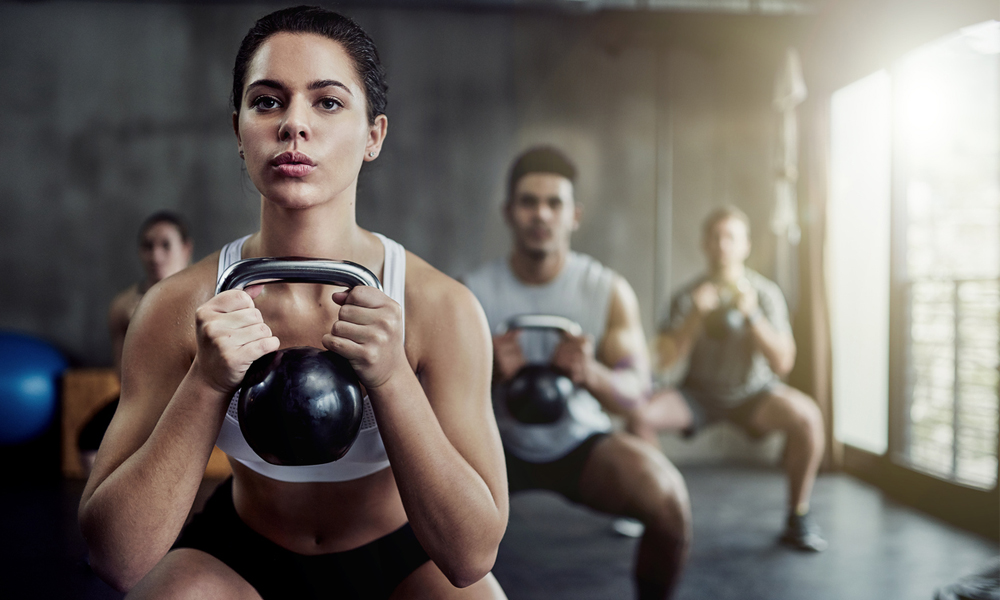I was never a very athletic kid. I was always in the back half of those picked for teams, and while I tried hard, I wasn’t great at team sports. I played for my elementary school basketball team in grades 7 and 8 (everyone made the team) and it was during my time on that team that I first experienced fitness-shaming.
We had a younger teacher from our school that coached. And while looking back, I can see that he was 100% invested in our success, I can also see that he wanted to win at all costs. He wasn’t too concerned with being politically correct or keeping things fair. He was only concerned with winning. So he would play the best players on the team for almost the entire game, and the other less skilled players, like me, got a much shorter session on the court. There must have been some league rule that everyone on the team had to play at least two minutes because that’s all I ever got.
And so I never got better at it either.
The problem was that while we were a winning team, there were only a few players who actually won the game for us. The rest of us got the clear message that we weren’t athletic or good enough players to actually play. Because we played to win.
But life isn’t about winning or losing. It’s about playing.
It wasn’t until I was well into adulthood that I realized athleticism didn’t mean fitness. I worked with a personal trainer who taught me that you don’t have to be athletic to be fit. In fact, more importantly, I learned that if you aren’t athletic, you still deserve to be fit.
The fitness shaming I experienced early on in life made me feel like I shouldn’t try at sports because I wasn’t good at it. And so I self-sabotaged in a way and never invested the time I needed in order to get good at any sport. I found some later success in step aerobics—remember that?—and then joined an adult-softball league, which was really the first time I truly enjoyed a team sport and lost myself in the game.
It actually drives me crazy to see the fitness shaming that goes on amongst women, especially on social media. It seems like fitness is the one area where many of us struggle with feeling not good enough. Instagrammer Sarah Stage is extremely active and has made a business out of being a fitness influencer, but her extreme level of fitness seems to aggravate the trolls out there—who spend a lot of time shaming her for not being healthy. Her Instagram account documented two pregnancies in which she maintained a high level of fitness (and a six-pack) throughout. While she is unlike most women, since she barely showed even at 9 months pregnant, her photos are meant to be aspirational.
But people don’t like it. The comments run the gamut from awe and mild jealousy (“Me after I eat all u can eat but this is her 9 months preggo”) all the way through to disbelief and accusations that Sarah Stage wasn’t actually pregnant and instead used a surrogate. One of her recent postpartum posts had a more relatable caption—she talked about recovering from a c-section and wearing skinny jeans to hide her incision. But while some commended her for her wonderful figure, other followers had much meaner things to say.
On the opposite side of the coin, heavier women are also shamed for their workout photos, how they look wearing leggings and any other number of trivial or cruel criticisms.
No matter if you are a woman with a fit-body or a woman who has a journey ahead towards fitness goals, both seem to be equally shamed by others.
The more that we live our lives in a ‘public’ sort of way, the more obvious the nay-sayers and critics become. There were always there, however, but now there is a vehicle to make their opinions known. Even if you are simply a woman with a few dozen friends or followers online, there may be someone in your network making a not-so-nice comment about how you look in your fitness gear.
Personally, my lack of success early-on in athletic pursuits became a big hurdle to overcome. I didn’t ever feel worthy of fitness—like somehow it wasn’t meant for me. And when I see it happening to others, especially new mothers, or women with small children, my heart breaks a little inside.
We reward our children for efforts in anything they attempt to do. Can’t we do that with one another?

I think this is an informative post and it is very useful and knowledgeable. I really enjoyed reading this post. Big fan, thank you!